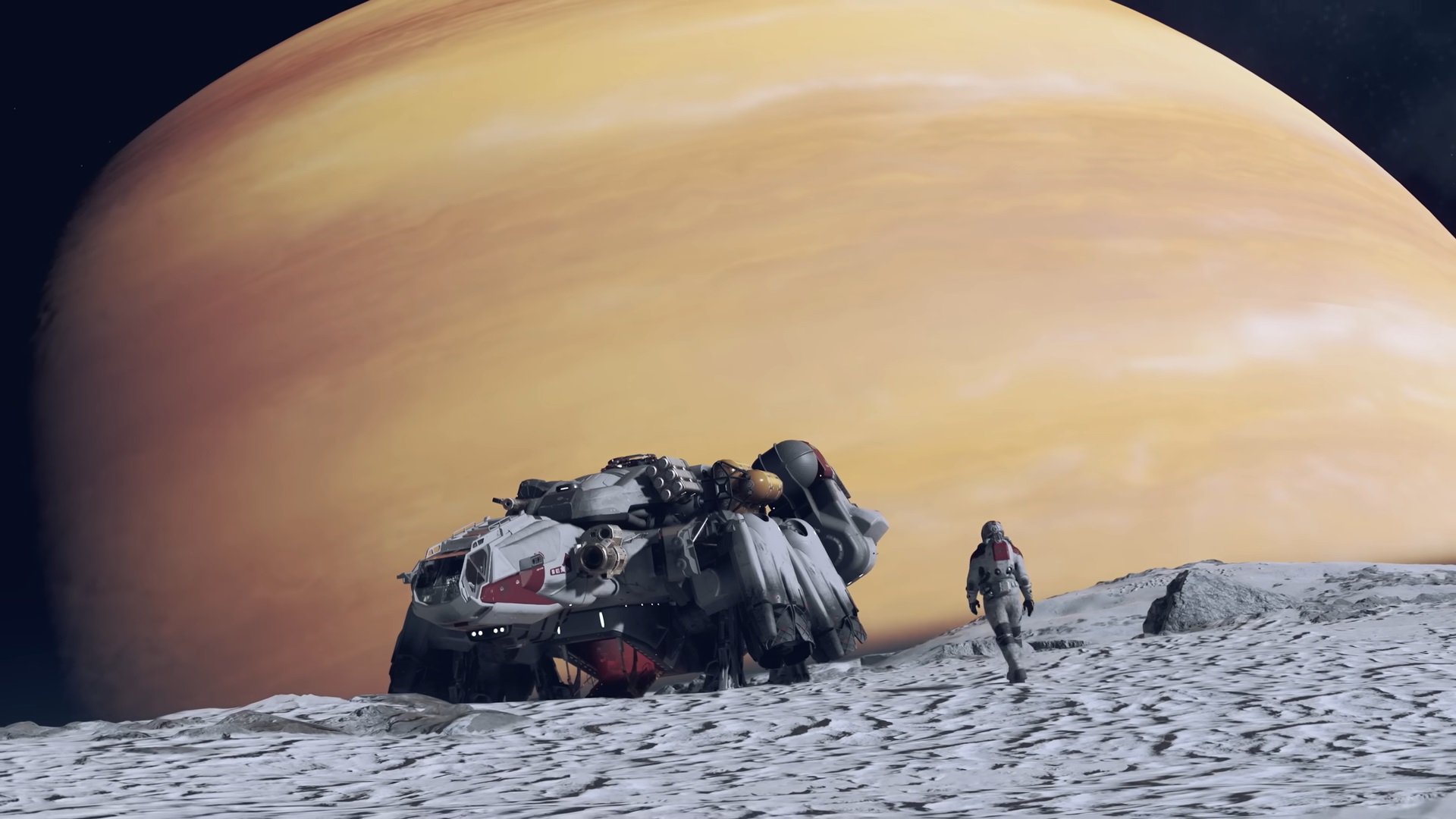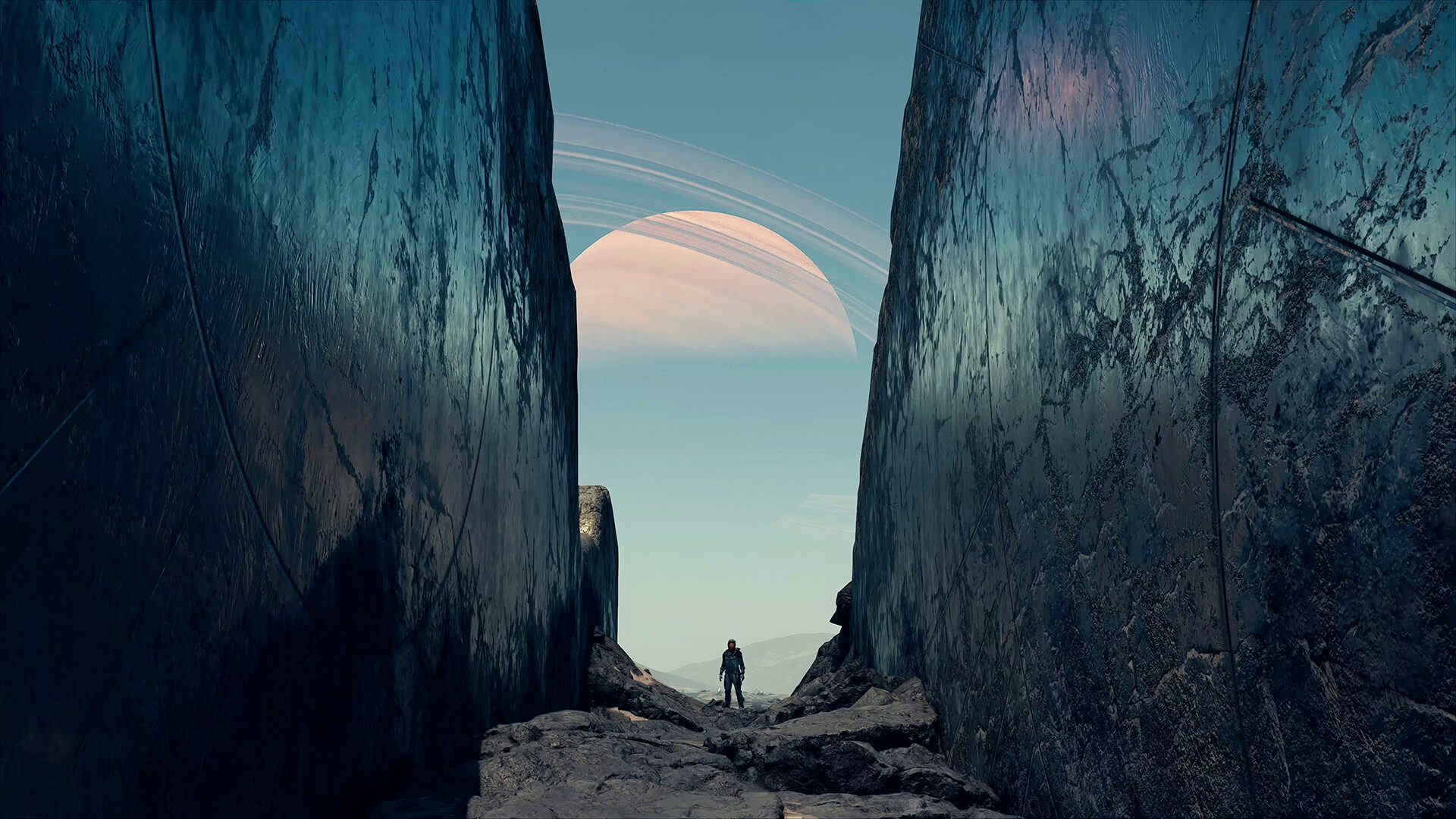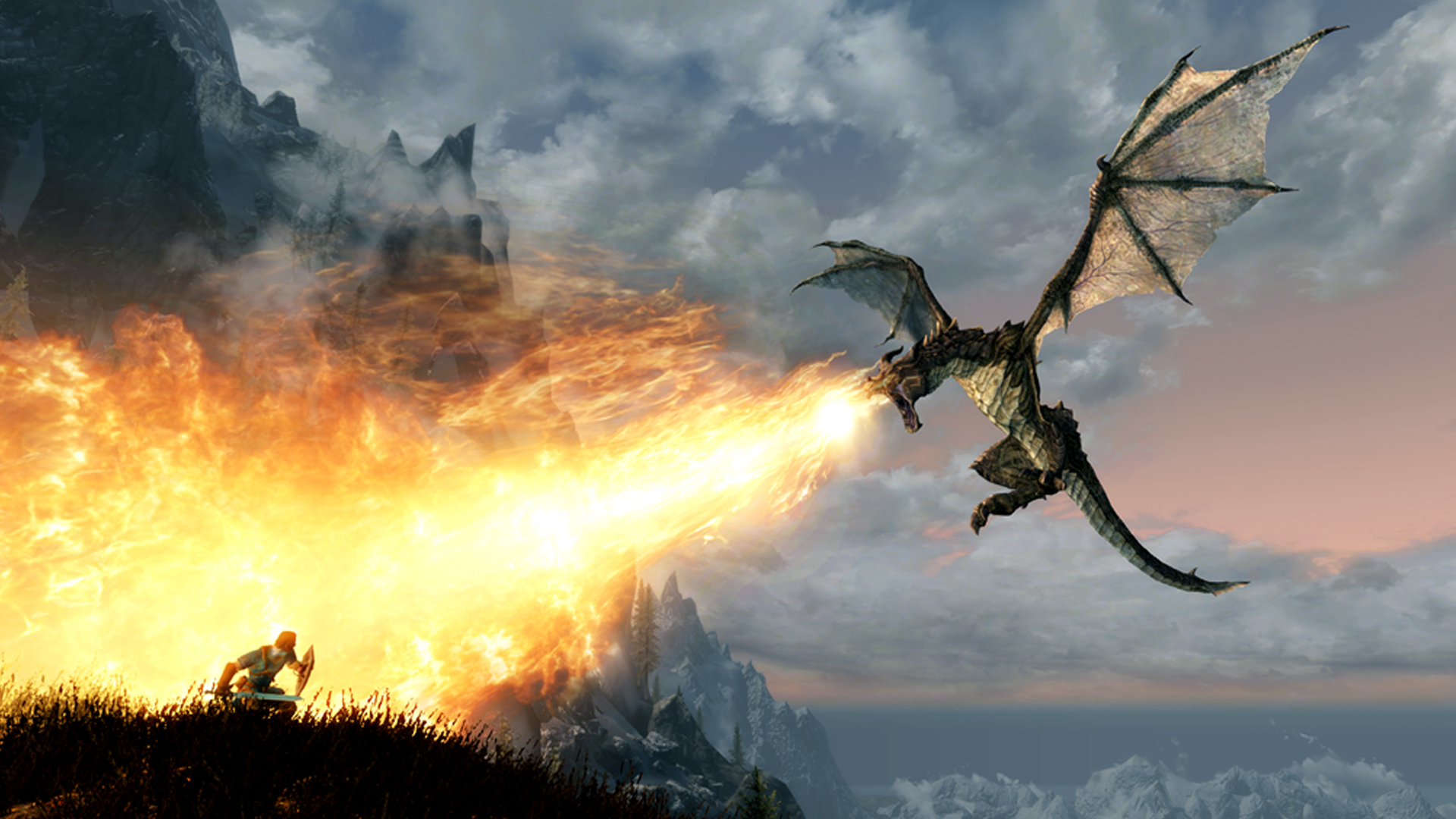Starfield is bigger and more ambitious than Skyrim, but will it stand the test of time in the same way?
Opinion | It's got the ingredients to match The Elder Scrolls 5's legacy, but does Starfield know what to do with them?

On a train journey home from Glasgow city center one wet afternoon in late 2011, I sat opposite a man who'd just purchased Skyrim. Without overly romanticizing the memory, I'll never forget the look on his face as he read the game's description on the back of the box. His eyes were wide and fixated, and he had the faintest of grins as he gripped the plastic on either side of the case with both hands. There was a sense of wonder about his movements as he cracked the seal and unfolded the paper map of the titular realm inside – a behavior I've since observed in my kids while unwrapping birthday presents – before he traced a line between Whiterun and Winterhold with his finger. The scene was so perfect it'd have made a great TV commercial for Bethesda, were it not for the shattered train window covered in bird shit at the man's back, and the fact that the graffitied carriage smelled like piss.
Fast forward several weeks and, after receiving the fifth mainline Elder Scrolls game myself as a Christmas gift from my girlfriend, I understood the train man's behavior perfectly. That train journey made way for a carriage ride in a similarly decrepit vehicle. In place of the man and I, were the Dragonborn and three other prisoners. Instead of rainy Glasgow, was snowy Skyrim. And that sense of wonder moved from reality to Tamriel. Fast forward 12 years, and players are still discovering that special feeling for the very first time.
In short: an excellent game has been galvanized by a great modding scene, a thriving roleplaying community, and dedicated launches on just about every single platform imaginable – making Skyrim today as legendary as the fable it proclaims. Starfield, on the other hand, is more ambitious than anything Bethesda Game Studios has even created. It's the developer's first new game series in 25 years, and marks a distinct shift in tone away from The Elder Scrolls and Fallout dynasties; swapping fantasy lands and post-apocalyptic planet earth for the near-limitless vast expanse beyond the atmosphere above.
Starfield has all the ingredients to match Skyrim's legacy, then. So why can't I shake the feeling we won't be talking about it in the same terms as its high-fantasy forerunner down the line?
Spaced out

It's not my intention to be negative for the sake of it here, nor is it my aim to yearn for, or even dwell on, the past. Skyrim is great, but it's also 12 years old. Starfield is great, but it arguably lacks the innovative strides that drove The Elder Scrolls 5 and Fallout 3 forward, in both RPG and open-world sandbox terms. Contrary to Todd Howard's prior claim, Starfield isn't "Skyrim in space" – and while I was unsure if that was a good or bad thing during my first dozen or so hours wandering the virtual cosmos, I'm definitely now leaning closer to the latter the more time I spend among the stars.
Against its blockbuster sales and impressive player counts so far, I'm not sure Starfield can be described as polarizing per se, but opinion is split among our writers here at GamesRadar+. Our five-star Starfield review bills the sci-fi RPG as the best thing Bethesda has done since Oblivion, whereas Guides Writer Will Sawyer reckons Starfield feels like a missed opportunity for Bethesda to reinvent itself. I myself have definitely been wowed by the vast scale of Starfield, but I probably sit somewhere between these two points of view. Starfield is a brilliant Bethesda game, but, for me, it's not revolutionary in the same way some of the studio's previous outings were. Fallout 3 turned an old-school isometric role-player into a fully blown FPS sandbox extraordinaire, for example, and Skyrim rewrote the rules of RPG high-fantasy, with scores of players using it as an entry point to the Elder Scrolls universe itself.

"But where No Man's Sky's path to improvement was clearly defined from the off, Starfield is under no pressure to evolve in the same manner."
For me, Starfield doesn't possess these seminal qualities. In fact, I'd even argue that Fallout 4 and its multiplayer successor Fallout 76 are less memorable in the pantheon of 21st century Bethesda games, but are elevated by their attachment to their tried and tested series. If we look elsewhere in the sci-fi open-world space, No Man's Sky marks the quintessential iterative journey, whereby the game that launched in 2016 is unrecognizable to the stellar experience that exists today. But where No Man's Sky's path to improvement was clearly defined from the off, Starfield is under no pressure to evolve in the same manner. Updates and DLC will inevitably expand its universe down the line, but the game's early commercial success will almost certainly dictate the pace (or lack thereof) of such a process.
Weekly digests, tales from the communities you love, and more
Which is, of course, totally fine. Starfield has a burgeoning modding scene on PC, with roleplay videos steadily filling social media and video sharing sites by the day – in the exact same way Skyrim did at launch. But beyond the honeymoon period of this AAA game; the hype derived from this particular studio and its esteemed back catalog; the console-exclusivity bragging rights that certain facets of players seem eternally obsessed with; and the similar brand loyalty that exists during one of the busiest and most amazing video game release schedules we've had in some time, can Starfield endure with the same stature? I remain unconvinced.
I've said this before, but Starfield to me is a jack of all trades but a master of none. And, call me a romanticist, but I just can't picture players sharing the same enthusiasm for Starfield's Special Enhanced Anniversary Edition in 10 years time as that man cradling Skyrim in his arms on the train all those years ago.
Here's a broad selection of the best RPGs you should play right now

Joe Donnelly is a sports editor from Glasgow and former features editor at GamesRadar+. A mental health advocate, Joe has written about video games and mental health for The Guardian, New Statesman, VICE, PC Gamer and many more, and believes the interactive nature of video games makes them uniquely placed to educate and inform. His book Checkpoint considers the complex intersections of video games and mental health, and was shortlisted for Scotland's National Book of the Year for non-fiction in 2021. As familiar with the streets of Los Santos as he is the west of Scotland, Joe can often be found living his best and worst lives in GTA Online and its PC role-playing scene.



